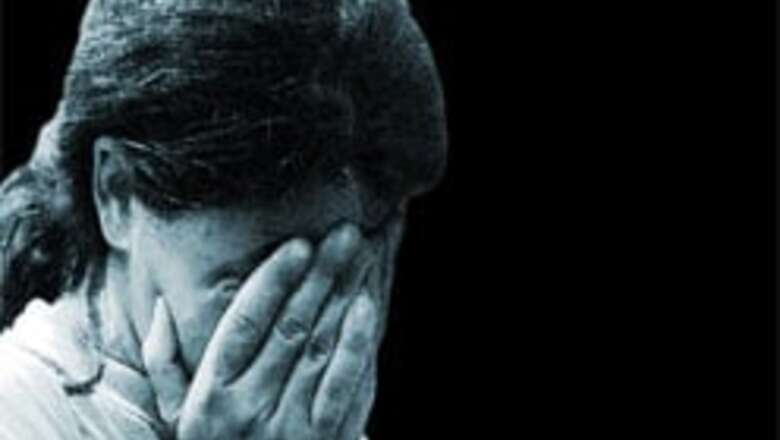
views
Hyderabad: Union Minister of State for Coal and Mines Dasari Narayan Rao's daughter-in-law, D Susheela filed a complaint of harassment against her in-laws at the Punjagutta Police Station on Thursday.
Taking recourse to the recently introduced Domestic Violence Act, Susheela said that both Dasari Narayan Rao and his wife D Padma have been against her marriage to their son, D T H M Prabhu, which had taken place in March 1995.
Accusing her in-laws and her husband of harassment, Susheela said that she had been kicked out of the Rao household recently, and now the latter was trying to wed their son off for a second time. She also accused her husband of having made a demand for dowry on June 27, 2005.
She said that initially a temporary compromise had been worked out between her family and her husband's family, even to the extent of the Rao family purchasing a three-storied -building in Andhra Pradesh's Ranga Reddy District in the name of Rao's son, herself and her son. They had also promised a flat and given an undertaking of maintaining cordial relations.
Susheela said that these promises were yet to be fulfilled, and she now says that her husband has deserted their 11-year-old son and her and gone back to his parental home.
"Now, they (Rao and his wife) have taken away my husband, leaving me and my son. When I went to my in-laws house to meet my husband, my in-laws did not allow me to meet him, and started harassing me, and forced me to take a divorce, and also threatened me by sending some strangers. They used abusive language and forced me to vacate my rented house. From the day of my marriage, they are harassing me like this, and my relatives of dire consequences if I don't divorce my husband. Due to this, I have no other way but to commit suicide," Susheela said in statement to the police.
Confirming the receipt of the complaint, Srinivas Rao, Additional Inspector of Police at the Punjagutta Police Station, said the case is pending.
"We will inquire and see the applicability of the case under the Domestic Violence Act, which came into force recently," Additional Inspector of Police Rao said.
The Protection of Women from Domestic Violence Act - 2005 came into effect last Thursday.
Under the Act, wives, mothers, live-in partners, sisters, mothers-in-law or any woman with whom a man has a relation with are covered. The husband or male companion accused of violence against a woman will have to cough up Rs 20,000 as a fine and can be imprisoned for any kind of violence or insult.
Minister for Women and Child Development, Renuka Chowdhary, said she had discussed the matter with the Home Ministry also in order to make the police force in the country more sensitive towards such complaints in the future.
The Ministry has simultaneously issued another notification, laying down the rules framed for the implementation of the Act. These rules provide for, among others the appointment of protection officers, service providers and counsellors. Action is to be taken in the event of a respondent breaching the protection order passed by a magistrate in favour of an aggrieved woman as per the rules.
PAGE_BREAK
Chowdhury has said the Bill would go a long way in providing relief to victims of domestic violence. The Ministry has requested all State Governments and Union Territories to make the necessary administrative arrangements for the application of the Act.
The Act was passed by Parliament in August 2005 and assented to by the President on September 13, 2005. Its implementation was kept pending as a detailed consultation was required for the framing of the rules.
Primarily meant to provide protection to the wife or the female live-in partner from violence at the hands of the husband or a male live-in partner or his relatives, the law also extends protection to women who are sisters, widows or mothers.
Domestic violence under the Act includes actual abuse or the threat of abuse whether physical, sexual, verbal, emotional or economic. Harassment by way of unlawful dowry demands on a woman or her relatives would also be covered under this Act.
The Bill seeks to cover those women who are or have been in a relationship with an abuser where both parties have lived together in a shared household and are related by consanguinity, marriage or a relationship in the nature of marriage, or adoption.
In addition, relationships with family members living together as a joint family are also included. Even those women who are sisters, widows, mothers, single women, or living with the abuser are entitled to legal protection under the Act.
One of the most important features of the Bill is the woman's right to secure housing. It provides for a woman's right to reside in her matrimonial or shared household, whether or not she has any title or rights in that concerned household. This right is secured by a residence order, which will be passed by a court. These residence orders cannot be passed against anyone who is a woman.
The other relief envisaged under the Act is that of the power of the court to pass protection orders that prevent the abuser from aiding or committing an act of domestic violence or any other specified act, entering a workplace or any other place frequented by the abused, attempting to communicate with the abused, isolating any assets used by both the parties and causing violence to the abused, her relatives and others who provide her assistance from domestic violence.
It further provides for the appointment of Protection Officers and NGOs to provide assistance to a woman, medical examination, legal aid, and safe shelter.
It also provides for a breach of protection order or an interim protection order by a respondent as a cognizable and non-bailable offence punishable with imprisonment for a term, which may extend to a year or with a fine which may extend to twenty thousand rupees or with both.
Similarly, non-compliance or discharge of duties by the Protection Officer is also sought to be made an offence under the Act with similar punishment.
















Comments
0 comment